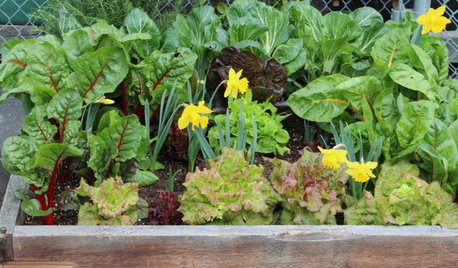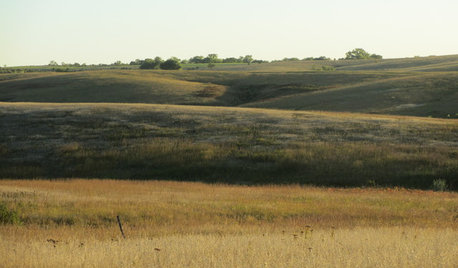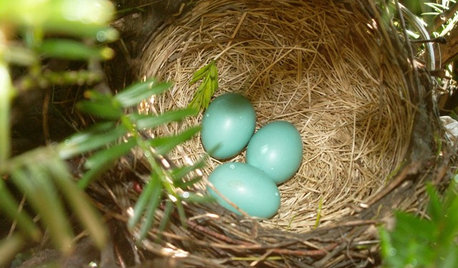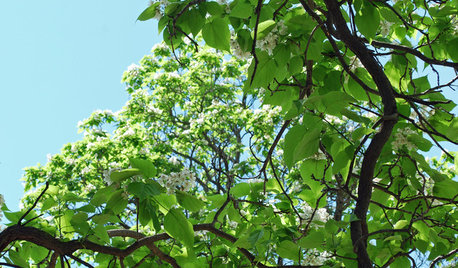Got no worms!
jim_w_ny
14 years ago
Related Stories

EDIBLE GARDENSHow to Grow Your Own Sweet Summer Crops
This guide will help any gardener get started on growing the freshest warm-season veggies and berries for summer
Full Story
FARM YOUR YARDGrow a Kitchen Garden in 16 Square Feet
Got a sunny 4-by-4 space? You can make meals more interesting with your own vegetables and herbs
Full Story
GARDENING GUIDESHow to Get Your Prairie On
Have a field day with your landscape, even if you've got just a few modern containers on a paved path
Full Story
GARDENING FOR BIRDSWhat to Know About Birds Nesting in Your Yard
Learn how to observe, record data and help ornithologists with NestWatch’s citizen science project understand bird trends
Full Story
HOUZZ TOURSHouzz Tour: For the Love of a Cat in Philadelphia
Pet-friendly features integrated into a mod, eclectic and colorful home mean everyone in the family is happy
Full Story
KITCHEN DESIGNCockadoodledoo! Roosters in the Kitchen
Add Country Charm and Good Luck With a Chicken in the Cucina
Full Story
LIFE21 Things Only People Living With Kids Will Understand
Strange smells, crowded beds, ruined furniture — here’s what cohabiting with little monsters really feels like
Full Story
LANDSCAPE DESIGNGreat Design Plant: Retreat to the Shade of Hardy Catalpa
Big foliage and a towering height provide a shady respite in summer, but that's not all hardy catalpa offers dedicated gardeners
Full Story
DIY PROJECTSTurn a Wooden Pallet Into Unique Photo Frames
Free wood? We're so in. Salvage a pallet or other cast-off wood to make delightfully distressed frames that fit almost any decor
Full StoryMore Discussions








Lloyd
gardenlen
Related Professionals
Brentwood Landscape Architects & Landscape Designers · Fort Lee Landscape Architects & Landscape Designers · Oconomowoc Landscape Architects & Landscape Designers · Concord Landscape Contractors · Deerfield Beach Landscape Contractors · Del Aire Landscape Contractors · Holtsville Landscape Contractors · Plainview Landscape Contractors · Tewksbury Landscape Contractors · Thonotosassa Landscape Contractors · York Decks, Patios & Outdoor Enclosures · Framingham Decks, Patios & Outdoor Enclosures · Riverside Decks, Patios & Outdoor Enclosures · St. Louis Decks, Patios & Outdoor Enclosures · Westfield Decks, Patios & Outdoor Enclosurespropofol
CaptTurbo
iam3killerbs
petalpatsy
Kimmsr
iam3killerbs
jim_w_nyOriginal Author
Lloyd
makete
petalpatsy
petalpatsy
luckygal
Kimmsr
avid_hiker
jim_w_nyOriginal Author
User
alphonse
iam3killerbs
jim_w_nyOriginal Author
iam3killerbs
avid_hiker
david52 Zone 6
avid_hiker
iam3killerbs
jim_w_nyOriginal Author
iam3killerbs
avid_hiker
jim_w_nyOriginal Author
iam3killerbs